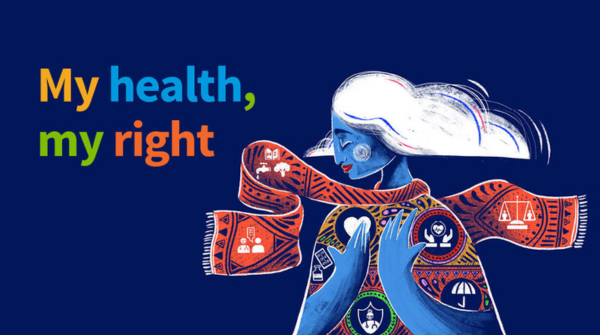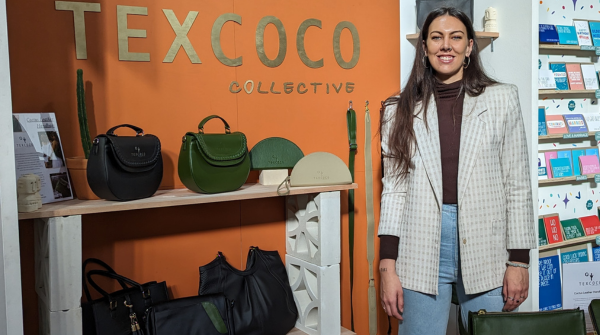International Women's Day: Creative Women Who Inspire

Influential creative women that have inspired my journey.
Many remarkable women have played a hand at defying the societal expectations stacked against them to stay true to their character and their creativity. Writing a list of influential women may be one of the hardest things to think about because I have been inspired by so many women in my life. It is hard to reduce the list to an appropriate length that you want to read. The simplest way I thought to condense this list, of which would have well over 100 names, is to make it relevant to my current trajectory. These five formidable females have influenced me, my business, the way I see the world and the kind of impact I aspire to.
Wether or not these women defined themselves as feminists or not they certainly had a hand at shaping the movement that is happening in current day. Women artists changed history and the art world, and should be celebrated for their fearlessness. From them I have learned that it takes hard work, perseverance and total belief in oneself to live a life of integrity.
Frida Kahlo - Painter
I want to say I have been obsessed with Frida before her popularity reignited thanks to the powers of social media, but I can't say for sure. Since the day I started drawing and finding artists' work that inspired me, I was hooked on the uni-browed goddess that held so much emotion in the eyes of her self-portraits. It was my first trip to Mexico in 2017 that I really began to investigate the life of Frida Kahlo. I had spent months previous to my departure divulging the pages of Hayden Herrera’s biography “Frida”. It was here that I really began to know more about the illusive Frida Kahlo and the suffering and trauma this woman was condemned to. When I was in Mexico City the first place I needed to visit was la casa azul, “the blue house” where she lived with muralist Diego Riveria. When confronted with her reality was when the words of Herrera came to life.

Known in Mexico as la heroína del dolor, “the heroine of pain,” Frida Kahlo left an important legacy for female artists to follow in her footsteps and shaped feminism as we know it today. She broke all social and normative conventions of her era that still defy traditional sense of what it means to be a woman. Kahlo was raw and honest about being a woman and her paintings explore the multitude of layers that come with it. Frida is still an inspiration because she did not allow any of her illness or suffering to limit her or hinder her artistic pursuits, “I am not sick. I am broken. But I am happy to be alive as long as I can paint.” she stated.
Frida has been reborn as a feminist icon for our current generation. She represents a whole cross section of marginalized groups—lesbians, gays, feminists, the handicapped, Chicanos, Communists, hypochondriacs, substance abusers, and even Jews (despite her indigenous Mexican identity, she was in fact half Jewish and only one-quarter Indian). Frida made it legitimate for women to outwardly display their pains and frustrations and to thus make steps towards understanding them. Her self-portraits depict scenes of her inner emotional torments such as miscarriage, divorce, love, loss and death “I paint self-portraits because I am so often alone, because I am the person I know best,” Kahlo once stated.
Maya Angeluo - Poet

Maya Angelou is a world famous writer, poet and scholar. Her writing has often been praised for its depictions of Black beauty, the strength of women, and the human spirit. She was a preeminent voice of feminism and power amongst young women.
Her poem 'Phenomenal Woman' brings home the idea that a female doesn't have to conform or be beautiful to be exceptional, phenomenal. Empowerment comes from being confident in your own female skin.
Angeluo developed a love for language and poetry during her 5 years of silence after being raped as a little girl. In addition to examining individual experience, Angelou’s poems often respond to matters like race and sex on a larger social and psychological scale. Her works have earned her more than 30 honorary degrees as well as nominations for a National Book Award and a Pulitzer Prize.
Gabrielle “Coco” Chanel - Fashion Designer

French fashion designer Gabrielle Chanel’s name is renowned all over the world. It wasn't until I went to the National Gallery of Victoria. Gabrielle Chanel. Fashion Manifesto that her story became known to me. Of course, I knew about the famous perfume Chanel No5 and the statement “little black dress” but as far as her life story goes, I wasn't well aware.
Her pioneering approach to design, construction, production and honouring the female form changed the way women thought about fashion. Chanel designed balanced, straight forms that respected a woman's body and allowed ease of movement. She liberated women from the tyranny of the corset by popularising trousers, making them a key piece in women's wardrobes. Her styles were simple, practical and a relaxed elegance.
At age 71, Gabrielle Chanel reopened her fashion house after the war and having been closed for 15 years. Chanel’s post-war suit was the embodiment of freedom. All aspects of its construction were defined with the female body in mind – a perfect balance of silhouette, materials and purpose. Chanel’s unorthodox contributions to the fashion industry helped pioneer today's contemporary woman. Chanel was a feminist before feminism was a movement. She worked hard to create a new sense of style that she believed was able to inspire others to change how the world viewed women.
Barbara Kruger - Artist

I was introduced to the artworks of Barbara Kruger in my first year of university studying photojournalism. Her work packs a punch and as a young impressionable art student that is what I needed to get me thinking about the real issues in our society.
She is most known for her feminist provocations and commentaries on religion, sex, racial and gender stereotypes, consumerism, greed, and power. The slogans and phrases that her famous black, white and red collage work convey, still resonate in today's society. Kruger’s work continuously challenges and questions our notions of identity, and the sources of power we are confronted with. Consumerism and greed became one of Krugers main fasinations but her feminist imagery has had the most lasting impact. She does not adhere to any categorisations the art critiques put her in and has always had reservations towards the art establishments saying “Women’s art, political art — those categorisations perpetuate a certain kind of marginality which I’m resistant to. But I absolutely define myself as a feminist.”
Nonetheless Barbara uses her reputation and witty voice to raise important and pertinent issues for anti-consumerism, for women’s rights, for equality, and for thinking. “I think what I'm trying to do is create moments of recognition,” she once said. “To try to detonate some kind of feeling or understanding of lived experience.”
Emma Watson - Actress

Emma Watson has been a fierce campaigner for environmental issues, sustainable fashion, gender equality and animal welfare. Since she learned of the major ethical issues in the fashion industry she has done everything in her power to advocate for change. She uses her fame for the advantage of others and to give a voice to the unheard. She has long been a promoter of ethical fashion. Her Calvin Klein Met Gala 2016 gown was made out of recycled plastic bottles stating that “now is the time for thoughtful fashion”.
I recently watched the documentary of Emma’s guest editor of Vogue Australia. The documentary takes viewers through the thought processes of putting issue 60 together and having Emma Watson as a guest editor for the March 2018 issue, which is dedicated to sustainability and “Designing the Future”. In a statement Emma proposes each reader to make a one degree shift, “when steering a boat, a captain can shift the wheel one degree and it drastically changes the course of the boat. I would like to challenge you, after reading this issue, to make a one-degree shift, because a small change can make a huge difference.”




